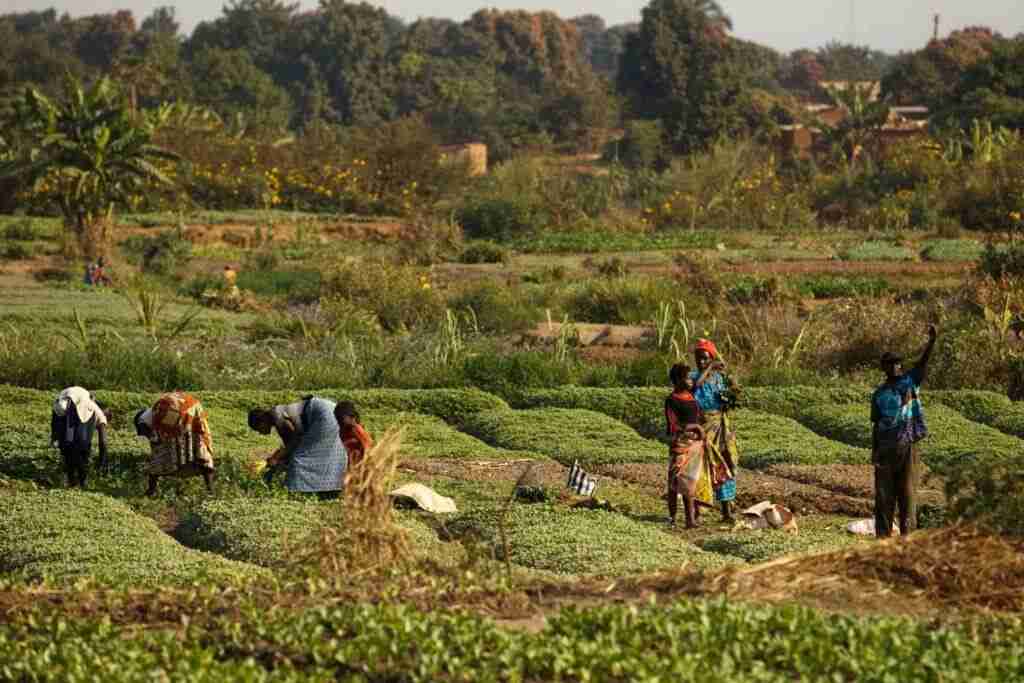Rather than helping to address food insecurity, the agro-ecological agenda may in fact be trapping African farmers in poverty.
That’s the finding of the first continent-wide meta-analysis of conservation agriculture experiments in Africa, and it threatens to completely up-end the dominant paradigm around agro-ecology.
In recent years, agro-ecology has come to be seen as a virtual panacea in sub-Saharan Africa. Aid agencies, churches, development NGOs and United Nations agencies all now tie their support for resource-poor farmers to an explicitly agro-ecological agenda.
NGOs are keen to offer anecdotal evidence for how these approaches can help smallholder farmers in Africa. Yet scientifically rigorous empirical evidence for the benefits of agro-ecology — also termed “conservation agriculture” — has so far been lacking.
Until now, with the publication of a paper titled “Limits of conservation agriculture to overcome low crop yields in sub-Saharan Africa” in the peer-reviewed journal Nature Food.
Scientists, who analyzed 933 observations across 16 countries in sub-Saharan Africa comparing conservation agriculture with conventional cropping, found that agro-ecological approaches do not substantially improve productivity and do not therefore help address the food insecurity of smallholder farmers.
This is not because conventional tillage-based farming is better than conservation agriculture — in fact, as these results show, they are equally bad — but because the advocates for agro-ecology also tend push an ideological agenda that rejects scientific innovations such as biotechnology, hybrid seeds, mechanization, irrigation and other tools that might more reliably increase productivity for smallholder farmers in Africa.
The study authors, led by Marc Corbeels, a specialist in sustainable intensification based at CIMMYT in Nairobi, Kenya, found that conservation agriculture did not improve yields in cotton, cowpea, rice, sorghum or soybean. Maize yields did show a 4 percent increase, but only if glyphosate pre-emergence herbicide treatments were applied, something which is strictly forbidden by agro-ecology advocates.
In practice therefore, agro-ecology is likely to have no benefits at all to most farmers in Africa.

In fact, it could even have negative effects. This is primarily because soil improvements from conservation agriculture require the use of crop residues as mulches. In dry conditions these can help retain moisture in the ground by reducing evaporation. However, crop residues are much more valuable to smallholder farmers as fodder for cattle and other livestock animals, which produce meat, milk and manure and are therefore much more important for safeguarding food security than a slight increase in maize yield. In the arid conditions of much of sub-Saharan Africa, there is simply no spare biomass to use in conservation agriculture.
This is not to say that no-till systems have no benefits anywhere in the world. In fact, reduced or conservation tillage approaches have been widely adopted across North and South America, where they help to reduce soil erosion, conserve moisture and sequester carbon. Indeed, most of the carbon benefits of genetically modified crops — which removed 24 millon tonnes of CO2 in 2016 — arise because herbicide tolerance traits allow farmers to adopt no-till practices.
These benefits, however, arise in capital-intensive mechanized systems, not in the subsistence agriculture that is mainly practiced in Africa. Without the use of herbicides, farmers in Africa adopting no-till have to weed by hand, a physically demanding task often performed in intense heat. Hand-weeding is also often seen as a woman’s task, aggravating gender inequality.
Discussing the new Nature Food paper, Katrien Descheemaeker from Wageningen University in the Netherlands (who was not involved in the study) writes: “The findings of Corbeels and colleagues refute the claims that CA [conservation agriculture] would substantially improve food security of smallholders in an environmentally and socially sustainable way.”
Descheemaeker adds that “small yield increases are meaningless at the farm level in terms of improvements in food self-sufficiency and income, mostly because of small farm sizes” and that Corbeels and colleagues’ results show that “the elimination of plowing on small farms would not lead to higher profitability (possibly aggravating gender inequality instead).”
She concludes that: “All of this indicates that CA should not be promoted on the grounds of its potential to improve crop yields and food security, and that focus should be shifted to a wider range of options to enhance the livelihoods of African smallholder farmers.”
It remains to be seen whether the charities, UN agencies and environmental NGOs that are so assiduous in promoting agro-ecology will accept this latest scientific data. If not, their continued efforts may worsen food insecurity and further aggravate gender inequality across sub-Saharan Africa, harming the interests of hundreds of millions of the world’s poorest people.
Mark Lynas is a British author, journalist and environmental activist who focuses on climate change. He is a contributor to New Statesman, The Ecologist, Granta and Geographical magazines, and The Guardian and The Observer newspapers in the UK; he also worked on the film The Age of Stupid. Find Mark on Twitter @mark_lynas
This article was originally published at Cornell Alliance for Science and has been republished here with permission. Follow the Alliance on Twitter @ScienceAlly


































